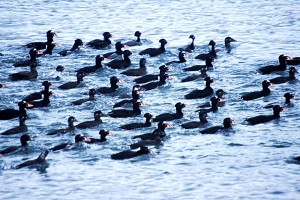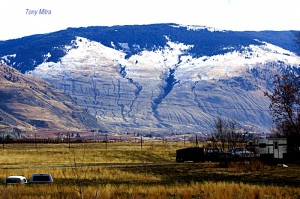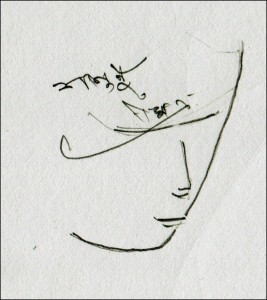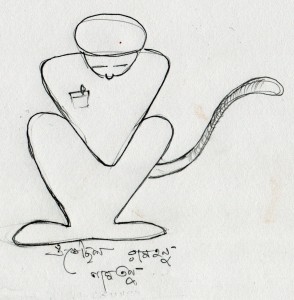It has been an enduring few years since I first sent two distinct packages containing my tissue extracted from my mouth, for initiating two separate lines of analysis of my genes. One was from my mitochondrial DNA, to track my maternal ancestry. The other is from my Y-chromosome, to track my paternal ancestry.
It took about two months, before information started coming up on my own page at the Gene-base site. It also started a long learning process where I tried to decipher some of the information available about my genes, and try to make sense of it in satisfying my basic curiosity – who am I, and where did I come from.
In the following months and years, more and more information has been made available, not just from reports of my test, but as the larger picture gets more detailed, as more and more people have their genes mapped.
Then, as my curiosity was heightened, I ordered some more tests, which can in cases be conducted without further sending of tissue samples. Clearly, the samples I sent a few years ago are not all used up. Also, clearly, they do not destroy the sample, and keep some of the leftover for further study. If however, the remaining sample is no good for the purpose, I am notified and a fresh envelope arrives with instructions on how to extract fresh body tissues, mark them, seal them and post them back.
This map is one of the intriguing things one can generate, step by step, about our ancestry. I started out with my maternal ancestry, mitochondrial DNA analysis. The origin of it was traced to a Haplogroup called ‘L’, and in particular, L3. That pinned the emergence of my maternal clan to a spot in east Africa more or less where Sudan is today. But that happened likely than sixty thousand years ago or so. Then came further Haplogroups, from L to L3 to N, R and U. However, the strength of prediction that my maternal ancestry definitely followed that timeline and that track on the map, is not terribly strong. Chances that the lineage actually ended at Scandinavia is only around 37%. To be more certain of it, additional tests need to be done and likely compared with those with definitive links of the past in those regions. Anyhow, additional tests are undergoing right now, and we shall know the result in a month or so.
Meanwhile, I already suspect a few details, which are appearing from other parts of the analysis report. One of them is that my mothers side has had a wide ranging link with people around the world, much more so than my fathers side. For example, the map above that shows a link to Scandinavia has little, I think, to do with Nordic people of today, and has a lot more to do with the Indigenous folks that lived there a long time ago – like the ancestors of lapland caribou herders and tribals of the Caucasian steppe. This particular map can be clicked to show the next stage, where my mother also shares Haplogourp ‘D’, which is widely distributed among aboriginal people around the world, from Siberia, China, India, to Australia and the entire Americas. I can almost safely say that my maternal ancestors had cousins that discovered the Americas long before the tribe of Christopher Columbus evolved. I say cousin, and not a direct ancestor, because I suspect the direct lineage did not go to the Americas and then somehow return back to Asia. Rather, the Asian clan remained, continued to mix and evolve, and ended up somewhere to the north east of India where another lineage, that of my father, finally met up with each other in the town of Santiniketan int he last century.
The fat arrow lines and the red star mark (origin or my maternal distinct marker) are created by Genebase report. I saved the image and added my own thin red lines to superimpose the known (suspected) ancestral wandering paths of my paternal side. As far as I can see, my fathers side picked up distinct identification marks perhaps around ten thousand years after my mothers side, at a location only slightly to the north of the red star mark. But my paternal line likely took a land line route through Arabia and Anatolia to the Mediterranean, whereas my maternal line likely took a watery route that crossed the mediterranean somewhere. But of course, it is possible that the Mediterranean was at the time not connected to the Atlantic, and was dry or shallow enough to cross on foot.
My paternal side, as far as I can see, then took a consistently eastern direction north of the Himalayas, and into the Tibeto-Chinese-Mongol highlands and later into the eastern basin. Until about ten thousand years ago, still stone age, my paternal ancestry had not yet stepped foot in India, as far as I can see. My maternal side by then had criss crossed india a few times, though not yet showing up on this map.
Ohh well… so who am I. Where did I come from, and where am I going ?







